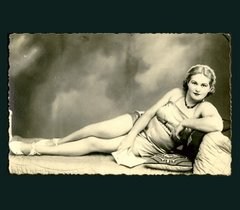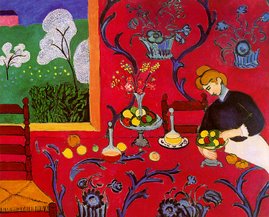
Sunday, April 29, 2007
Friday, April 27, 2007
Sex Education for Teachers
Although the clip above is an amusing look at one of the struggles sex educators might have, the reality of many teachers who teach sex ed not being trained (or being uncomfortable with the material) is hugely problematic. Many of the moral wars fought around sexualities education focus on the regulation of language, concepts that speak to generations of controversy, hetero-normacy and social control. In Queens, New York, an administrative rule in place since 1987 banned the words abortion, masturbation, birth control and homosexuality from being discussed in any context in classrooms, and was still in effect up to a few years ago. Concern about the way curriculum is languaged not only originates with parents and moral activists, educators sometimes protest as well. Teachers at an Oshkosh, Wisconsin elementary school in 1994 felt uncomfortable with the prospect of discussing proper genital names with their students. The educators complained to their board, resulting in the words anus, penis, genitals, urethra and vagina being removed from the curriculum. I don't know what they replaced them with, but I'm certain it would make for a very odd sex education.
Most universities do not offer training in how to teach sexualities, leaving many educators in the uncomfortable position of Peggy Hill in this clip. In Quebec Canada, sex education has been removed from the curriculum entirely in a formal context, with the Ministry of Education suggesting it should be infused through the curriculum instead. Except, that it's not happening. Without formal curriculum requirements, most teachers will not opt to teach sex ed. Not only is it uncomfortable, but there is so much we don't know even as adults. Pop quiz: How do you catch (or prevent) Hepatitis "B"? Can you give your partner genital herpes if you have a coldsore? Where exactly is the vas deferens, hmmmmm? Yeah, I thought so. It's not an easy subject to teach. Not only do you have to be up on all the technical aspects, but in order to teach it well, you need to have done some pretty serious reflection on your own sexual biography, fears, interests and desires. And that can be a pretty intense mirror to look into. Giving teachers guidance, training and support is the first step in giving kids a meaningful sex education.
Thursday, April 26, 2007
Flowers for Al and Don - Love and Activism




Wednesday, April 18, 2007
The Little Black Book for Girlz


Monday, April 16, 2007
The politicization of AIDS

Photosource: Stonewall25: March up Fifth Avenue
"Both the Moral Majority, who are recycling medieval language to explain AIDS, and those ultra-leftists who attribute AIDS to some sort of conspiracy, have a clearly political analysis of the epidemic. But even if one attributes its cause to a microorganism rather than the wrath of God, or the workings of the CIA, it is clear that the way in which AIDS has been perceived, conceptualized, imagined, researched and financed makes this the most political of diseases"
Friday, April 13, 2007
Groovy New Feelings
Always innovators when it comes to sexualities education, a clever and amusing commercial from Planned Parenthood, (Canada ) that is enjoying a lot of attention on YouTube. (Ed.note: many chapters now call themselves the Canadian Federation for Sexual Health, in Quebec it is called the Quebec Sexual Health Network.)
Have you come a long way, Cosmo girl?
Outrageous and Outraged: The Sisters of Perpetual Indulgence


Back in 1976, when a couple of nuns loaned habits to a couple of nice gentlemen in Iowa who were performing in the musical The Sound of Music, it is unlikely they considered the act to be the birth of what would become an international culture-jamming queer protest movement. Three years later, those same men dressed in their nun garb and wandered around some of San Francisco’s nude beaches, turning heads with the unlikely combination of nuns smoking cigars and carrying machine guns. After capturing the attention of the media and the public during a few more appearances at sporting events, the Sisterhood of Perpetual Indulgence was formed and immediately started recruiting new members. Their first fundraiser was held in 1980, raising money for gay Cuban refugees. By 1982, their activism had started focusing on the troubling and worrisome ‘gay cancer’ that would become known as AIDS; the Sisterhood distributed information to the gay community and started fundraising to raise funds to fight the disease. Thirty years later, the Sisterhood’s brand of carnivalesque resistance continues to inspire performance art protest, art installations and community activism internationally. With more than twenty “convents” established throughout the USA, Scotland, Colombia, Uraguay, Australia, Germany, the UK and Switzerland, the movement has become a formidable force for AIDS fundraising and awareness. They offer grants to other organizations doing activist work, and continue to charm and enlighten crowds with their irreverence and wit.
You can pray your soul silly by visiting the Sisters here
Thursday, April 12, 2007
The storied activist: The ACT UP Oral History Project

The purpose of this project is to present comprehensive, complex, human, collective, and individual pictures of the people who have made up ACT UP/New York. These men and women of all races and classes have transformed entrenched cultural ideas about homosexuality, sexuality, illness, health care, civil rights, art, media, and the rights of patients. They have achieved concrete changes in medical and scientific research, insurance, law, health care delivery, graphic design, and introduced new and effective methods for political organizing. These interviews reveal what has motivated them to action and how they have organized complex endeavors. We hope that this information will de-mystify the process of making social change, remind us that change can be made, and help us understand how to do it. (ACT UP continues to fight to end the AIDS epidemic.)
This is an amazing resource for anyone interested in early AIDS activism, and organizations/individuals working toward social change. More than 60 people were interviewed for the project; Five minute video clips of the interviews and free full-text PDF files of every interview in its entirety are available for immediate download. Check out this phenomenal site
Disciplining discourses of gender and desire in "first time" stories

"If you are a girl; it will not feel very good - if you are a boy; it will be over so fast you won't know for sure how it felt. " The above is an excerpt discussing how teenagers will feel after their first sexual experience, from an online teen sex advice column by Michael Hardcastle (source can be found here: http://teenadvice.about.com/library/weekly/aa051500b.htm)
He goes on to state, "For boys, the "first time" is a sort of stepping stone to manhood, a sign that you are well on your way to being a real man. For girls, visions of the first time are often clouded with ideas of romance that are more based in dreams than in reality."
Unfortunately, this discourse of regret, trauma, and lack of desire are probably among the most common ways to describe first time sexual experiences of young women in the public sphere. Although undoubtedly some women's first time may, unfortunately, be negative and cause for regret, there exists a huge chasm between the way first time sexual experiences are discussed for (and by) men and women. In the second part of this advice, Hardcastle likens a male adolescent's first time as being a rite into manhood. Too bad for those poor, confused, distant from reality teenaged girls. Those dumb girls are in for a rude awakening, aren't they? *sigh*. Not only is Hardcastle certain that "it will not feel very good" emotionally for girls, but because the line between fantasy and reality is so dim for us gauzy, ethereal creatures we are really better off sticking to our romance novels.
 Note to Hardcastle: Pleasure and desire are absent discourses in many "first time" stories told by young women, not because most women experience trauma or regret, but because it is a safe and acceptable sexualized gender story for girls to tell.
Note to Hardcastle: Pleasure and desire are absent discourses in many "first time" stories told by young women, not because most women experience trauma or regret, but because it is a safe and acceptable sexualized gender story for girls to tell.Fortunately, some groups are trying to change the stories that are okay for girls and women to tell about their sexual experiences. AVERT.com (AVERTing HIV & AIDS) has created an online space for youth to discuss their first experiences, or reasons why they decided to wait. Interestingly, some young women actually engaged with personal agency, made decisions about when to get sexually involved and with whom, and enjoyed it. In this story related by "Parisa", not only is she convinced that she was sure she wanted to go ahead with intercourse, she confirmed with her partner that he did as well.
"Soon enough we were completely naked... he looked me in the eyes and told me he loved me more than anything in the world. then he kissed my forehead and asked me if i really wanted to go through with it, he didn't want me to do anything i regretted. I said yes, wholeheartedly, without an ounce of doubt in my mind. Then i asked him if he was sure he wanted to go through with it as well. He kissed my on the lips softly and said he wanted me to be his first and last. He wasn't an idiot though, he was very careful and made sure he brought condoms... and i highly reccomend using condoms because fearing pregnancy is the worst feeling in the world. So anyways... he slipped on a condom and we started making out again... we had a hard time getting it in the first time so i got on top to make it easier. The first time it only went in about half way. It hurt so bad beause he bought "non lubricated condoms", so we gave up and went out bought different condoms and came back and did it again... this time it went in all the way and didn't hurt quite as much. He was soo worried about me the whole time though, he kept asking me if i was okay and telling me that he loves me... he also kept getting worried and asking me if i wanted to stop. But anyways... this site helped me make my decision and i don't regret anything. Just make sure you know you're giving it up to the right person...."
Even as adults, we often make wrong choices or have regrets about our sexual experiences. But oh, it's so lovely when it's fun, safe and our choices are made from an empowered place. Here's hoping for more of those kinds of stories.
For more first person stories from AVERT, see:http://www.avert.org/morefirsttime.htm






